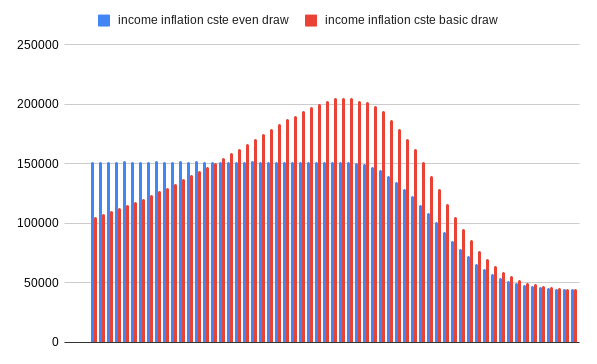copyright1997reloaded
Thinks s/he gets paid by the post
If you don't NEED the $ to fill budget holes consider donating some, or all, of the RMD to a QCD. The amount designated to the QCD never hits the income side of the 1040.
Thanks. Yes, I am aware of this and may do some of this. I already have a DAF set up that I did prior to the tax law changes (before the standard deduction was raised). Still working at using that money, which also grown (partially offsetting donations) as the market went up.
I might also change the beneficiaries on part of this tax-deferred bucket from my child (who might have a big tax issue given it has to be taken out over 10 years) to a set of descendant's (nephews/nieces and children) and charities, thereby lowering the overall tax burden. (I would leave the entire Roth and regular accounts getting step up in basis to my child.)

 I don't welcome the idea of what that will do to me tax wise (federal, state, IRMAA) on single filer on top of a pension plus social security. Yes, I know, a good problem to have.
I don't welcome the idea of what that will do to me tax wise (federal, state, IRMAA) on single filer on top of a pension plus social security. Yes, I know, a good problem to have.
